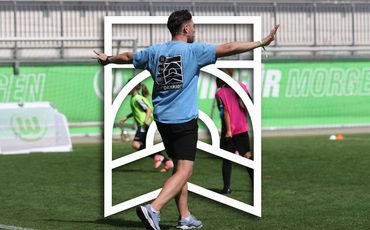The Role of the Support Team in Talent Development
Talent development is a complex process influenced by many factors. One of the most important elements in creating an effective Talent Development Environment (TDE) is the support team. These professionals work alongside coaches, athletes, and families to ensure that young athletes are not only developing their performance but also thriving as individuals.
Why a Support Team Matters
The size and structure of a support team can vary widely depending on the resources available. A professional football club might have a large, specialised team, while a smaller club may rely on a single coach. Regardless of size, the goal remains the same: to provide holistic support that nurtures both athletic performance and personal wellbeing.
Key Roles in a TDE Support Team
Here are some of the key professionals you might find in a well-rounded support team:
Strength and Conditioning Coach: Focuses on physical development—such as strength, speed, and power—while helping to prevent injuries and prepare athletes for the physical demands of their sport.
Physiotherapist: Plays a vital role in injury rehabilitation and prevention, ensuring athletes can recover safely and return to play stronger.
Nutritionist: Offers guidance on diet and nutrition, helping athletes fuel their bodies effectively and monitor changes in body composition.
Performance Analyst: Tracks key performance indicators and provides data-driven insights to coaches and athletes to support improvement.
Sport Psychologist: Helps athletes develop mental skills such as focus, resilience, goal setting, and emotional regulation.
Education and Welfare Professionals: Ensure athletes are supported in their education and overall wellbeing, helping them balance sport with life outside of it and plan for the future.
Performance Manager: In some organisations, a performance manager oversees the entire support team, ensuring all departments work together cohesively.
Communication and Collaboration
A key feature of effective support teams is regular communication. Team members often meet to discuss athlete progress from their unique perspectives, aligning on training plans, competition schedules, and even match-day decisions. This collaborative approach ensures that every aspect of an athlete’s development is considered and optimised.
Coaches play a central role in this process. As discussed in earlier sections, strong interpersonal skills are essential—not just for working with athletes, but also for collaborating effectively within a multidisciplinary team.
Conclusion
In summary, building a strong support team is essential for any talent development programme. Whether large or small, the team should be aligned in its mission to support both the performance and personal growth of young athletes. By bringing together diverse expertise and maintaining open communication, you can create a TDE that truly nurtures talent in every sense.
Watch the full video below
Comments
Related Pages


